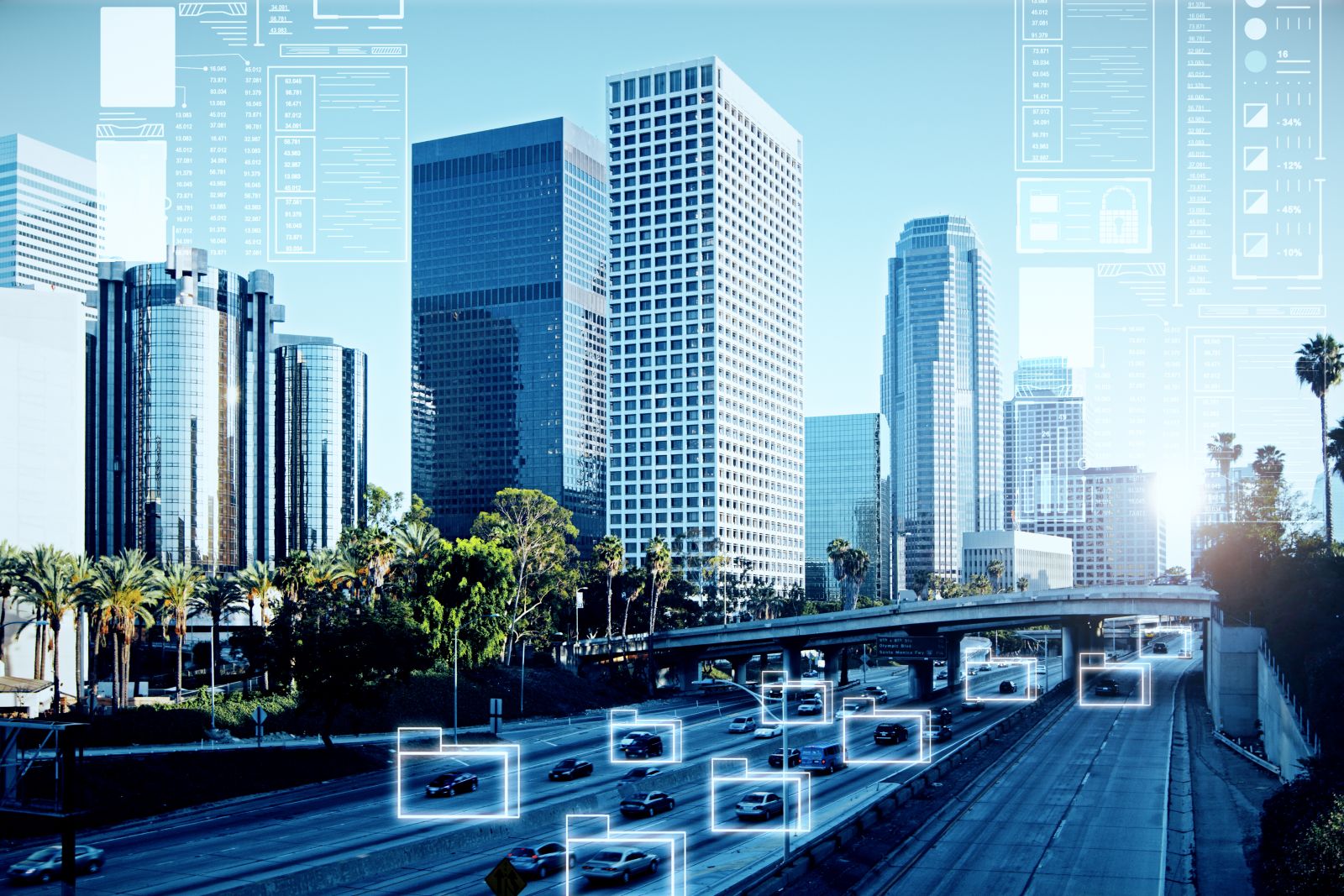2025.01.20
As technology continues to progress, the idea of smart cities is increasingly becoming a global trend in urban development.
Smart cities leverage information technology and data analytics to boost operational efficiency, improve quality of life, and encourage sustainable growth.At the heart of these cities is the seamless connectivity between various infrastructures, services, and systems, which helps optimize resource management and enhance public safety.
What are Smart Cities?
The concept of smart cities stems from IBM's "Smarter Planet" philosophy and digital urbanism, aiming to use advanced technologies and data analysis to enhance urban efficiency and residents' quality of life.
Technology integrates seamlessly into daily life, creating convenience through continuous data collection via sensors—enabling improvements in public services, such as smart traffic systems that optimize traffic light patterns in real-time to alleviate congestion.

"Smartness" is defined by refined management through the Internet of Things (IoT) and the Internet, promoting sustainability through renewable energy and efficient resource management to minimize environmental impact. Additionally, smart cities encourage resident involvement in urban governance, increasing transparency.
As urbanization accelerates, smart cities address traditional urban challenges and serve as key indicators of international competitiveness while enhancing quality of life.
Applications of Smart Cities
Scholars believe that smart cities should be reflected in the six indicators evaluated by the University of Vienna for major European cities, which are smart economy, smart mobility, smart environment, smart residents, smart living, and smart governance:
(Source:wikipedia )
|
Smart Economy |
|
|||||||||||||||||||||||||||
|
Smart Mobility |
|
|||||||||||||||||||||||||||
|
Smart Environment |
|
|||||||||||||||||||||||||||
|
Smart Residents |
|
|||||||||||||||||||||||||||
|
Smart Living |
|
|||||||||||||||||||||||||||
|
Smart Governance |
|
|||||||||||||||||||||||||||
Spark's Successful Case of Smart City Monitoring in Rome
Rapid population growth and economic development in Rome have significantly increased vehicle numbers, adversely affecting air quality and the environment.
In response, Spark partnered with Sony Europe, TTM Group, Envision, and Citelum to create a smart city solution to combat air pollution, traffic congestion, and pedestrian safety.

At the heart of this solution is the Genius Smart Tip smart pole, installed on traffic light posts to monitor traffic and parking in real-time. Equipped with two Sony IMX500 sensors, it relays vital data via neural networks, including vacant parking locations, pedestrian status at crosswalks, and the number of people waiting at bus stops.
Read more:《The successful case of smart city monitoring in Rome.》
As technology continues to progress, the idea of smart cities is increasingly becoming a global trend in urban development.
Smart cities leverage information technology and data analytics to boost operational efficiency, improve quality of life, and encourage sustainable growth.At the heart of these cities is the seamless connectivity between various infrastructures, services, and systems, which helps optimize resource management and enhance public safety.
What are Smart Cities?
The concept of smart cities stems from IBM's "Smarter Planet" philosophy and digital urbanism, aiming to use advanced technologies and data analysis to enhance urban efficiency and residents' quality of life.
Technology integrates seamlessly into daily life, creating convenience through continuous data collection via sensors—enabling improvements in public services, such as smart traffic systems that optimize traffic light patterns in real-time to alleviate congestion.

"Smartness" is defined by refined management through the Internet of Things (IoT) and the Internet, promoting sustainability through renewable energy and efficient resource management to minimize environmental impact. Additionally, smart cities encourage resident involvement in urban governance, increasing transparency.
As urbanization accelerates, smart cities address traditional urban challenges and serve as key indicators of international competitiveness while enhancing quality of life.
Applications of Smart Cities
Scholars believe that smart cities should be reflected in the six indicators evaluated by the University of Vienna for major European cities, which are smart economy, smart mobility, smart environment, smart residents, smart living, and smart governance:
(Source:wikipedia )
|
Smart Economy |
|||||||||||||||||||
|
|
|
||||||||||||||||||
|
Smart Mobility |
|||||||||||||||||||
|
|
|
||||||||||||||||||
|
Smart Environment |
|||||||||||||||||||
|
|
|
||||||||||||||||||
|
Smart Residents |
|||||||||||||||||||
|
|
|
||||||||||||||||||
|
Smart Living |
|||||||||||||||||||
|
|
|
||||||||||||||||||
|
Smart Governance |
|||||||||||||||||||
|
|
|
||||||||||||||||||
Spark's Successful Case of Smart City Monitoring in Rome
Rapid population growth and economic development in Rome have significantly increased vehicle numbers, adversely affecting air quality and the environment.
In response, Spark partnered with Sony Europe, TTM Group, Envision, and Citelum to create a smart city solution to combat air pollution, traffic congestion, and pedestrian safety.

At the heart of this solution is the Genius Smart Tip smart pole, installed on traffic light posts to monitor traffic and parking in real-time. Equipped with two Sony IMX500 sensors, it relays vital data via neural networks, including vacant parking locations, pedestrian status at crosswalks, and the number of people waiting at bus stops.
Read more:《The successful case of smart city monitoring in Rome.》


